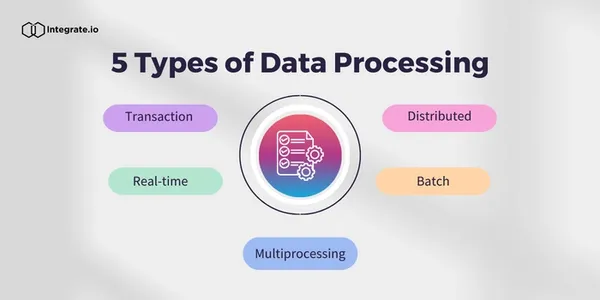In the world of data, two crucial roles play a significant part in unlocking the power of information: Data Scientists and Data Engineers. But what sets these wizards of data apart? Welcome to the ultimate showdown of Data Scientist vs Data Engineer! In this captivating journey, we’ll explore the distinctive paths these tech titans take to transform raw data into valuable insights.
Data Scientists use statistical expertise and machine learning magic to unearth hidden patterns and predict future trends. On the other hand, Data Engineers are the architects, building robust data pipelines and infrastructure to ensure smooth data flow and storage. Together, they form an unstoppable force that fuels the engines of innovation.
Table of contents
- What is Data Engineering?
- What is Data Science?
- Data Engineering vs Data Science – Overview
- Role and Responsibilities for Data Engineer and Data Scientist
- Skills Required
- Data Engineer vs Data Scientist Salary
- Data Engineer and Data Scientist – companies that will hire you
- Similarities Between Data Engineering and Data Science
- Educational Background Required for Data Scientist and Data Engineer
- Conclusion
- Frequently Asked Questions
What is Data Engineering?
Data engineering refers to the procedure comprising data organization, storage and processing. Data engineering aims to leverage the potential of data in decision-making through varying analysis methods. Skilled and trained data engineers use advanced tools and technologies to carry out the process.

What is Data Science?
Data science is a multidisciplinary field that dives deep into the field. With a more research-oriented perspective, it functions on the algorithms, processes, scientific methods and systems for knowledge and data extraction. It also utilizes advanced tools and techniques. However, the aim here is data analysis through statistics, artificial intelligence and machine learning.

Data Engineering vs Data Science – Overview
| Aspect | Data Engineering | Data Science |
|---|---|---|
| Primary Focus | Building and maintaining data pipelines and infrastructure | Analyzing and interpreting data to extract insights |
| Role Objective | Ensuring data is collected, stored, and processed efficiently | Leveraging data to make data-driven business decisions |
| Skills Required | Database management, ETL (Extract, Transform, Load) | Statistics, Machine Learning, Data Visualization |
| Tools and Tech | Hadoop, Spark, SQL, NoSQL databases | Python, R, SQL, TensorFlow, Pandas |
| Data Manipulation | Emphasizes efficient data processing and storage | Focuses on data analysis, modeling, and visualization |
| Output | Structured, clean, and accessible data | Valuable insights, predictions, and actionable outcomes |
| Key Responsibilities | Designing data architectures, data integration, data warehousing | Exploratory data analysis, predictive modeling, data visualization |
| Industry Application | Data infrastructure, data pipelines, big data solutions | Business intelligence, predictive analytics, data-driven decision-making |
| Collaboration | Collaborates closely with Data Scientists for data accessibility and quality | Collaborates with Data Engineers for data access and pipeline optimization |
| Goal | Sets the foundation for effective data analysis | Applies analysis to drive data-based decision-making |
Role and Responsibilities for Data Engineer and Data Scientist
Data Engineer Job Role
- Work on the complex and new problems arising regularly
- Develop big data infrastructure for analysis
- Design, build, integrate and test data
- Manage, maintain and optimize it as per the individual data requirements
- Build data pipelines
- Write complex queries and data mining
- Use ETL or Extra Transform Load for the development of large data warehouses
Data Scientist Job Role
- Perform online experiments and develop hypotheses
- Apply statistical analysis and machine learning algorithms on data for trend identification and creating forecasts
- Visualize and communicate your findings to a technical and non-technical audience
- Develop compatible models for
Skills Required
Data Engineer Skills

Technical Skills
- Deeper understanding and usability of programming languages such as Python, SQL,
- Ability to handle frameworks like NoSQL, Data streaming, MapReduce, Hadoop, Hive and Pig
- Cloud computing
- Familiarity with data warehouse platforms such as IBM’s Db2 warehouse and Amazon’s Redshift
- Working knowledge of Linux along with Microsoft Windows
Soft Skills
- Logical mind
- Ability to identify the data requiring processing and analysis
- Able to smoothly function with cross-functional teams
Data Science Skills

Technical Skills
- Expertise in programming languages like SAS, R, Python and Java
- Proficiency in Big Data frameworks like Spark,
- Knowledge of the basics of advanced technologies, including Machine Learning and deep learning
- Ethical knowledge comprising security, biases and privacy
Soft Skills
- Out-of-the-box thinking
- Ability to clearly and concisely explain the technical information in layman’s terms
- Ability to work independently
- Problem-solving
- Broad knowledge of advanced and important concepts
Data Engineer vs Data Scientist Salary
Data Engineer
The salaries for different levels of experience of data engineers are as follows:
| Position | Experience (years) | Average Salary per annum (INR) |
| Data Engineer/Associate data engineer/ Data Engineer II | 2-4 | 5 – 13 lakhs |
| Senior data engineer/Mid-level data engineer/ data engineer III | 4-5 | 10 – 24 lakhs |
| Lead data engineer/Team lead data engineer | 5-7 | 17 – 30 lakhs |
| Principal data engineer/Senior staff data engineer/Section lead data engineer | 8+ | 23 – 40 lakhs |
Data Scientist
The salaries at different experience levels for the post of a data scientist are tabulated as follows:
| Position | Experience (years) | Average Salary per annum (INR) |
| Data scientist/data scientist II/Associate data scientist | 2-4 | 7 – 18 lakhs |
| Senior data scientist/data scientist III | 4-5 | 16 – 30 lakhs |
| Lead data scientist | 5-7 | 18 – 32 lakhs |
| Principal data scientist | 8+ | 30 – 60 lakhs |
Data Engineer and Data Scientist – companies that will hire you
Engineer:
- Tech Giants: Google, Microsoft, Amazon, Apple, Facebook
- Consulting Firms: Accenture, Deloitte, McKinsey & Company, PwC, EY
- Financial Services: Bank of America, JPMorgan Chase, Goldman Sachs, Citigroup, Barclays
- Healthcare: Johnson & Johnson, Pfizer, Merck, Abbott Laboratories, UnitedHealth Group
- Retail: Walmart, Amazon, Target, Home Depot, Kroger
- Telecommunications: AT&T, Verizon, T-Mobile, Sprint, Comcast
Scientist
- Tech Giants: Google, Microsoft, Amazon, Apple, Facebook
- Consulting Firms: Accenture, Deloitte, McKinsey & Company, PwC, EY
- Financial Services: Bank of America, JPMorgan Chase, Goldman Sachs, Citigroup, Barclays
- Healthcare: Johnson & Johnson, Pfizer, Merck, Abbott Laboratories, UnitedHealth Group
- Retail: Walmart, Amazon, Target, Home Depot, Kroger
- Telecommunications: AT&T, Verizon, T-Mobile, Sprint, Comcast
Startups
- Data Engineering Startups: Databricks, Confluent, DataRobot, Snowflake, Cloudera
- Data Science Startups: Palantir, Kensho, Dataiku, Datadog, Stitch
These are just a few examples of the many companies that hire Data Engineers and Data Scientists. The specific companies that hire you will depend on your skills, experience, and location.
Similarities Between Data Engineering and Data Science
Regardless of the difference between data engineer and data scientist, there are some common points when considering data engineer vs machine learning engineer. They are enlisted as follows:
- Programming: Knowledge of programming languages for building data pipelines and maintaining databases
- Data handling: The common skills here involve
- Collaboration: They have to collaborate concerning data structure, deciding its compatibility with data analysis and pattern identification
- Data quality: Ensuring accuracy and consistency in data is an important task that both professionals need to perform
- Business understanding: Domain knowledge is essential for efficient functionality and understanding of the exact requirements
Educational Background Required for Data Scientist and Data Engineer
Data science and data engineering are both great fields, but they require somewhat different educational backgrounds. Here’s a breakdown:
Data Scientist:
- Master’s or Ph.D. More Common: For data scientist roles, employers often prefer a Master’s degree or even a Ph.D. [+] This is because data scientists need strong analytical skills in statistics, mathematics, and sometimes even business acumen.
- Relevant Bachelors Degrees: That said, it is possible to land an entry-level data science job with a Bachelor’s degree in a field like computer science, mathematics, statistics, or economics.
Data Engineer:
- Bachelor’s Degree is Common: For data engineer roles, a Bachelor’s degree in computer science, information technology, or a related field is typically sufficient. Some employers might prefer a Master’s, but it’s less common than in data science.
- Engineering or Math Background Preferred: Data engineers benefit from a strong foundation in software engineering principles and may also have studied engineering disciplines, applied mathematics, or physics.
Certifications:
- Both Can Have CS Backgrounds: While there are some differences, there’s also overlap. Both data scientists and data engineers can have computer science backgrounds.
- Certifications Can Be Valuable: Regardless of your educational background, certifications in data science or data engineering can be valuable additions to your resume.
Conclusion
Effective data handling is crucial for any organization, and skilled professionals are essential for both Data Engineering and Data Science roles. These positions are in high demand, offering many opportunities for career growth and success. Interestingly, a common skill set in these fields allows for a smooth transition between the two, depending on one’s interests and aspirations. Whether you become a data engineer or a data scientist, honing your expertise in either domain promises a bright future filled with promising career prospects. Embrace the world of data, and open the doors to endless possibilities in shaping the fate and reputation of companies through data-driven decisions. Your journey into the world of data begins with boundless potential and opportunities! At the End of these Article you will understand difference between Data Scientist and Data Engineer.
Analytics vidhya offers a wide range of courses for data professionals to excel in their careers. You can access these data engineering and data science courses here
Frequently Asked Questions
A. Both fields are important and rely on each other for data handling. The ‘better’ field among the two depends on one’s interests, skills and career goals.
A. The challenges in both fields vary. While data engineers encounter problems in data processing, pipeline and infrastructure development, data scientists have to deal with ML algorithms, statistics and others.
A. Data scientists are at senior level and hence are paid comparatively more than data engineers.
A. Yes, switching fields is easier by acquiring analytical skills, learning machine language and programming languages and working on data science projects.
Data scientists generally earn more than those with an MBA. The specialized skills in data science are in high demand, contributing to higher salaries compared to the broader roles associated with an MBA. If you’re looking for solid earning potential, a career in data science is worth considering





